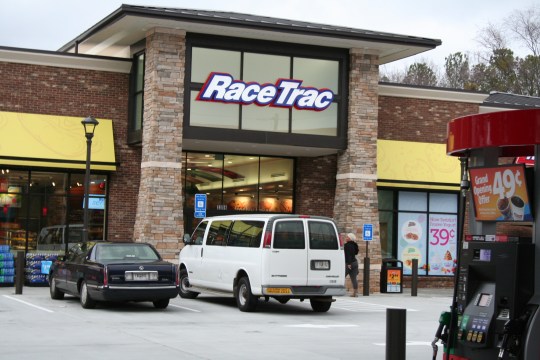
Two years ago, Jamie Benton of RaceTrac confronted a problem that vexes human resources directors across the nation: increasing health care costs.
By 2011, employee health costs for the gas station/convenience store company were going up 9 percent a year.
So Benton and RaceTrac, a private company headquartered in Atlanta, switched to a “consumer-driven’’ health plan. It has a high deductible, but that is coupled with health incentives for the company’s thousands of employees.
If the workers do a health risk assessment, are nonsmokers and join a wellness program, RaceTrac will pay nearly half of their deductible.
The health plan change led to a startling 12 percent reduction in RaceTrac’s health costs.
Benton is bringing his ideas on health care savings to a summit in Atlanta next month. The event is sponsored by Employers Like Me, an informal organization of Georgia corporate health officials who are pursuing innovative strategies for taming costs. (Here’s a link for more information on the summit.)
The idea behind the Employers Like Me concept is to share information on the best practices, says Don Betts of Georgia Tech’s Enterprise Innovation Institute, who has helped bring the employers together.
The group, Betts says, is “for employers and by employers.’’ The member companies “have really helped the health care system move forward in their communities,” he says.
“There is a return on investment,’’ Betts says.
Georgia Tech has provided the glue and the back-office help for Employers Like Me.
Companies in the loose network include Chatham Steel Corp., Southwire and Fieldale Farms Corp.
Another is The Langdale Company, based in Valdosta. It produces wood and other forest products but also has car dealerships among its 23 businesses.
The company’s health care tactics include a combination of wellness and disease management programs, incentives and freebies. Langdale has used a health advocate to work with employees who have chronic diseases.
A 2011 GHN story also reported that Langdale identifies hospitals and physicians who provide good quality at a good price, and steers patients to them.
The Savannah Business Group on Health is another Employers Like Me member. It’s a group of self-insured employers that contracts directly with hospitals and doctors, using a “third-party administrator’’ and bypassing the typical set-up with health insurers.
Improving the business climate
SBG has more than 20 employers as members. Those companies vary greatly in size, with workforces ranging from 50 to 6,000.
The Employers Like Me group gives employers a chance to sit down together and swap ideas, says Gary Rost, executive director of the Savannah Business Group on Health.
Bill Custer, a health insurance expert at Georgia State University, says such employers can help control their costs by providing incentives to reward workers’ healthy behavior.
When contracting with medical providers, employers and insurers are increasingly looking to offer extra reimbursement for better quality of care, rather than just paying for the quantity of medical procedures done, Custer says.
Medical providers, in turn, “have been aggressively restructuring themselves’’ to meet the goals for better care, he says. Part of this payment revolution has been driven by the Affordable Care Act.
Benton, the RaceTrac official, looks forward to exchanging ideas with counterparts in other companies at the Employers Like Me summit March 6.
“If we had a good avenue to share good case studies, it would be a huge benefit,’’ he says.
The lower the health costs are in Georgia, the more attractive the state will be for employers to locate businesses here, he says.
And it helps improve employees’ health, says Benton. RaceTrac, as part of its effort, sponsors worker “boot camps’’ and 5K races.
Employers Like Me is all volunteer, paid for by the members companies, he notes. “It’s really people with great hearts trying to do what’s best for Georgia.’’
